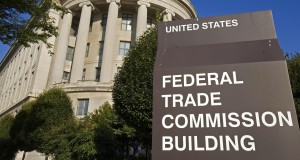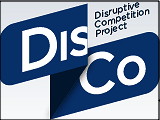There’s a famous old political adage — “where you stand is where sit” (also known as Miles’ Law) — meaning basically that government policy positions are dictated more by agency imperative and institutional memory than objective consideration of the public interest. A related concept is “regulatory capture,” where administrative agencies over time become defenders of the status quo and pursue objectives more for regulated firms as their constituency than consumers. Capture theory is closely related to the “rent-seeking” and “political failure” theories developed by the public choice school of economics. Or as Harold Demsetz put it well in his influential 1968 article, Why Regulate Utilities?, “in utility industries, regulation has often been sought because of the inconvenience of competition.”
That’s no longer limited to electricity companies and other public utilities these days. With the advent of rapid, low-cost entry into previously sheltered markets, powered by technology and the sharing economy, today’s incumbent industries are taking regulatory capture and politics as rent seeking to new heights. At DisCo we’ve written extensively about Uber, Lyft, Airbnb, Tesla and many other disruptive new start-ups that are facing a backlash from established industries (taxis, hotels and auto dealers, respectively) which use consumer protection as a Trojan Horse to disguise preventing or delaying competition on price, features and service. Politicians in locales as diverse as New York, New Jersey, San Antonio and Seattle (believe it or not!) have, wittingly it seems, gone along so far.

This is where what antitrust lawyers dub competition advocacy comes into play. Most antitrust policy in the U.S. is made in federal court as a result of merger, monopolization and horizontal collusion prosecutions launched by the Department of Justice (DOJ) and the Federal Trade Commission (FTC). But due to our federal-state system and a judge-made doctrine allowing states to exempt some markets from competition despite federal antitrust demands (government action, and private conduct to obtain such action, is challengeable in only relative narrow circumstances), much of the battle takes place in the legislative and regulatory arenas. Accordingly, competition advocacy is the primary tool available to antitrust enforcers in the U.S. to oppose state and local regulations favoring established firms over start-ups and parochially sheltering in-state companies from out-of-state competitors. The result is that for three decades the federal antitrust agencies have engaged in affirmative outreach to state and local legislators and regulators in the form of comments, letters and occasional lawsuits that seek to drive home the basic truths that competition outperforms regulation and the law should not pick winners and losers when it comes to evolving markets. (State attorneys general also undertake competition advocacy, principally through amicus briefs, as well.)
As the FTC staff has described, economics
posits that because of relatively high organizational and transaction costs, consumers will be disadvantaged relative to businesses in securing favorable regulation. This situation tends to result in regulations — such as unauthorized practice of law rules or per se prohibitions on sales-below-cost — that protect certain industries from competition at the expense of consumers. Competition advocacy helps solve consumers’ collective action problem by acting within the political system to advocate for regulations that do not restrict competition unless there is a compelling consumer protection rationale for imposing such costs on citizens. Furthermore, advocacy can be the most efficient means to pursue the FTC’s mission, and when antitrust immunities are likely to render the FTC impotent to wage ex post challenges to anticompetitive conduct, advocacy may be the only tool to carry out the FTC’s mission.
Or as FTC Commissioner Maureen Ohlhausen put it in a 2013 speech, a “significant focus” of competition advocacy efforts tends to be on “governmentally-imposed restraints on competition.” In countries with a history of government control over sectors of the economy, there may still be vestiges of unnecessary, anticompetitive restraints in their laws and regulations. “Even in historically free-market economies, such as the United States, there are often industries that benefit from government-imposed restraints on competition.” Advocacy is also cheaper, quicker and potentially more effective than enforcement. “Advocacy typically involves a small amount of resources relative to an agency’s other tools, especially law enforcement, while at the same time reaping potentially significant consumer benefits if successful. Changing or eliminating a single law or regulation can be more effective in opening the market to competition than any given law enforcement action.”
The FTC’s staff has recently been especially concerned with anticompetitive regulatory capture in local transportation markets. The agency has sent correspondence and filed comments in New Jersey, Missouri, Washington, DC and Chicago over the past few months protesting efforts to exclude ride-sharing services from the marketplace and to overturn legal restrictions on alternatives to traditional auto dealers for retail car sales. These are not the first efforts the FTC and its staff have taken regarding taxis. Marvin Ammori recounted some of that history in Slate:
In 1984, the Federal Trade Commission released a report that explained why taxis could charge customers exorbitant prices for dismal service. The simple reason, according to the 176-page study: lack of competition in the market. The culprit: local governments. City agencies that regulate cabs, generally called taxi commissions, were deliberately protectingfrom competition the very companies they were supposed to police. With no legitimate safety- or health-related reasons for doing so, the taxi commissions artificially limited the number of cab companies competing on the streets by restricting the number of available licenses. Armed with this report, the FTC took action. It made an example of two of the worst markets, Minneapolis and New Orleans, by filing lawsuits against the local governments and accusing them of illegally colluding with private taxi companies to crush competition and fleece residents.
Other industries where the FTC has historically used competition advocacy as a principal tool — at least in part because government-imposed restrictions on competition are more durable and impervious than what any private firm, even a monopolist, could impose — include interstate wine and alcohol sales, regulated electricity pricing, health care and real estate transactions.
Best route for ridesharing? FTC Staff offers Chicago ideas to promote competition and innovation. http://t.co/Y0GloPhYiV
— Maureen Ohlhausen (@MOhlhausenFTC) April 22, 2014
It might seem odd for a federal agency like the FTC to take action on what appears to be a purely local issue. But not only does the agency have the authority to sue cities in (ordinarily impartial) federal court to end their anticompetitive actions, it also has deep expertise in transportation markets and antitrust doctrines. The FTC’s power to regulate “interstate commerce” is famously far-reaching; the Commission could regulate local taxi markets merely because interstate travelers take taxis (and Ubers) to and from the airport when they fly across state lines. But whether or not the FTC has legal jurisdiction, its competition advocacy is important for the simple reason that powerful industries are often able to squelch dissent, buy media coverage (and sometimes support) and in nearly all cases outlast their disruptive new competitors by spending massively on erecting or bolstering regulatory barriers to competition. This author knows that all too well, as my small, streaming IPTV clients are so threatened financially by the television networks’ huge copyright infringement litigation campaign (now pending at the U.S. Supreme Court) against the Barry Diller-financed Aereo that they’ve chosen business models which forsake the bold new services currently up in the air legally.
Some have been known to call this the “Ostrich theory” of competition law. Competitors that are shoe-stringing their capital budgets and sales growth rarely have sufficient liquid assets to fight a protracted legal battle over their very right to exist, so they hide, hoping that will protect their good will. (Think of the long-dead Napster and MP3.com as Internet analogs to those intrepid taxi competitors of the 1980s, for instance.) For every Uber there are a score of stealth-mode companies and several dozen more that were unable to attract angel or venture financing, as investors typically eschew markets where legal ambiguity could defeat their ROI.
That makes the role of the FTC and Justice Department in competition advocacy doubly important. When it’s the government that is harming consumers by keeping competition out and coddling up to politically connected industries, relying on private rivals to carry the flag is plainly too much to ask or expect. Because government restrictions operate openly and are backed by the enforcement power of the state, public restraints, unlike private restraints, cannot be undermined by market forces, and thus are far more likely to have sweeping and harmful long-term effects. They can hardly succeed every time, but the FTC staff’s efforts at competition advocacy thus serve a key role that would otherwise go unfulfilled.
When we live in an era in which even the famous Gray Lady herself editorializes against Airbnb in favor of rent-stabilization regulation, competition is clearly in trouble. Without federal competition advocacy, however, things would be even worse. So kudos to the FTC staff; few know your names, yet as consumers we all are indebted to your quiet, and quietly effective, work. Former FTC Chairman Tim Muris said more than 10 years ago that that FTC has “secured many victories” with its competition advocacy efforts over the past few decades and has “largely won the intellectual debate.” Let’s wish for that track record to continue. As Muris’ Republican successor Bill Kovacic cautioned in 2010, however, “faced with the prospect of being legislated out of business, trade groups invest mightily in lobbying. Too often there are no trade groups to counter anticompetitive legislation,” leaving the FTC and DOJ as consumers’ best, and probably last, hope.
Update: Reported after this post was published, a New Jersey Assembly committee unanimously advanced legislation Thursday that would overrule a 2013 state Motor Vehicle Commission decision and allow Tesla to sell cars directly to consumers. The bill would authorize “zero emission vehicle manufacturers” to retail motor vehicles but also require them to operate service facilities. Pro-Tesla Electric Car Bill Advances in NJ Assembly | NJ.com.
Originally prepared for and reposted with permission of the Disruptive Competition Project.


Leave a Reply